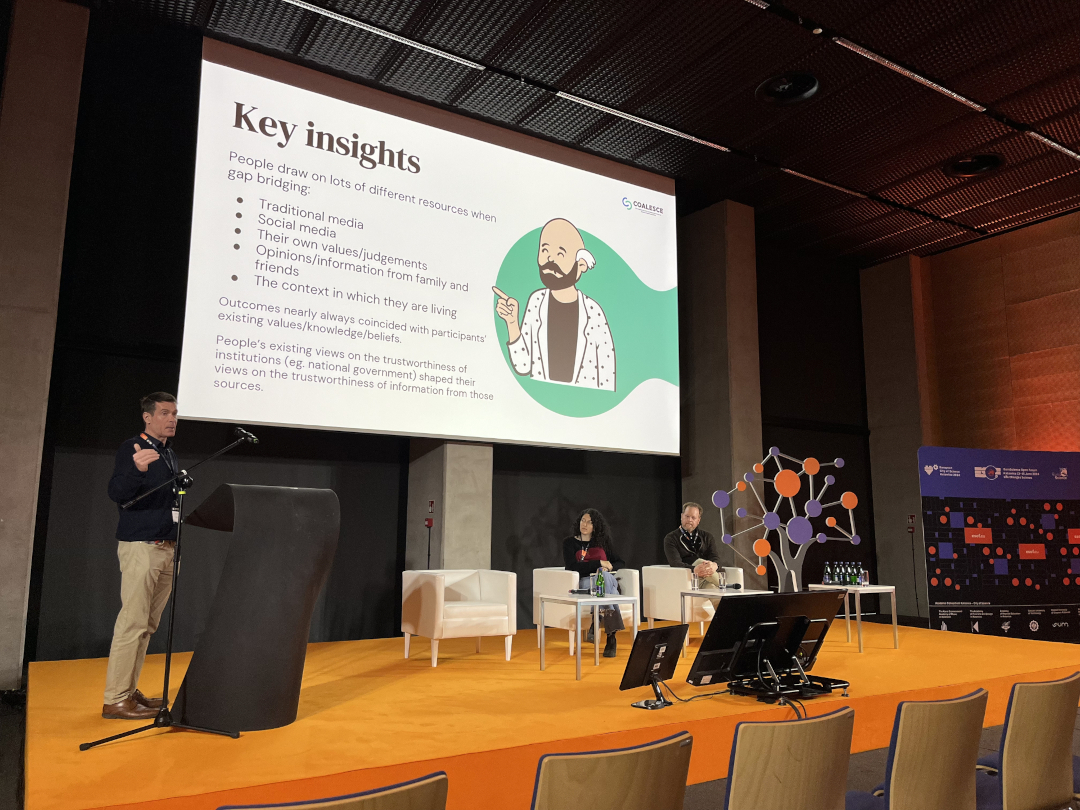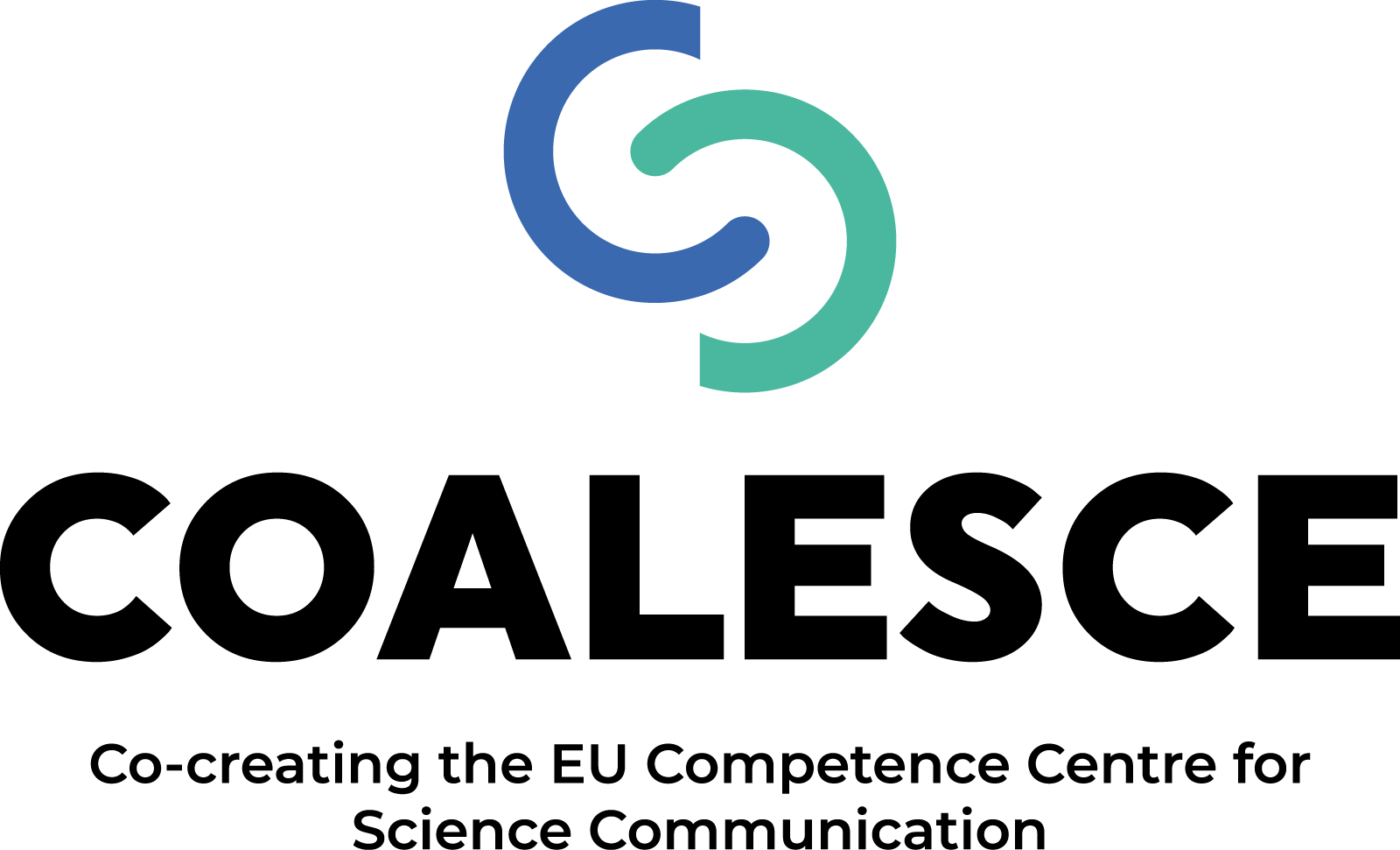Debating science communication’s role in addressing existential threats

How can we communicate science more effectively to help address challenges such as antibiotic resistance and pandemics? It’s a question that gets to the heart of what the new European Competence Centre for Science Communication is setting out to achieve and also formed the focal point at a debate at ESOF2024, held in Katowice, Poland.
The debate, organised by members of COALESCE, was attended by policymakers, journalists, representatives of NGOs and other stakeholders to discuss some of the thorny challenges that stand in the way of effective science–society relations at times when they are needed most. The session, which took place on the first day of the conference, also provided an opportunity to showcase the way that COALESCE is working – bringing together insights from several large research projects to provide guidance and inspiration on effective science communication.
During the debate, the participants heard from RETHINK, TRESCA and ENJOI, three research projects funded by the European Commission under the Horizon 2020 programme, which are feeding into the fledgling Competence Centre.
From RETHINK, Dr Andy Ridgway, based at the University of the West of England, UK, presented research into people’s “sensemaking practices” about science during the pandemic. It showed how people used social media, their own values as well as opinions of friends and family to inform their decisions when COVID-19 was spreading across Europe.
Giulia Bonelli from Formicablu, Italy, spoke on behalf of ENJOI, which found that engagement increases audiences’ trust in science and that diversity should be applied as a guiding principle in journalism, supporting efforts to fight polarisation and discrimination. Dr Jason Pridmore from Erasmus University Rotterdam, the Netherlands, discussed TRESCA, which demonstrated the power of openness, vulnerability, transparency and accessibility when communicating science.
Ideas from participants on how to address challenges to effective science communication at times of crisis included fact-check scores beneath online science articles, introducing consequences for disinformation and peer curation of scientific information. The session finished with examples of innovative approaches to science communication highlighted in the Horizon 2020 projects such as the video created within TRESCA in conjunction with Kurzgesagt and new approaches to reaching underserved audiences from RETHINK.
The video by TRESCA and Kurzgesagt


